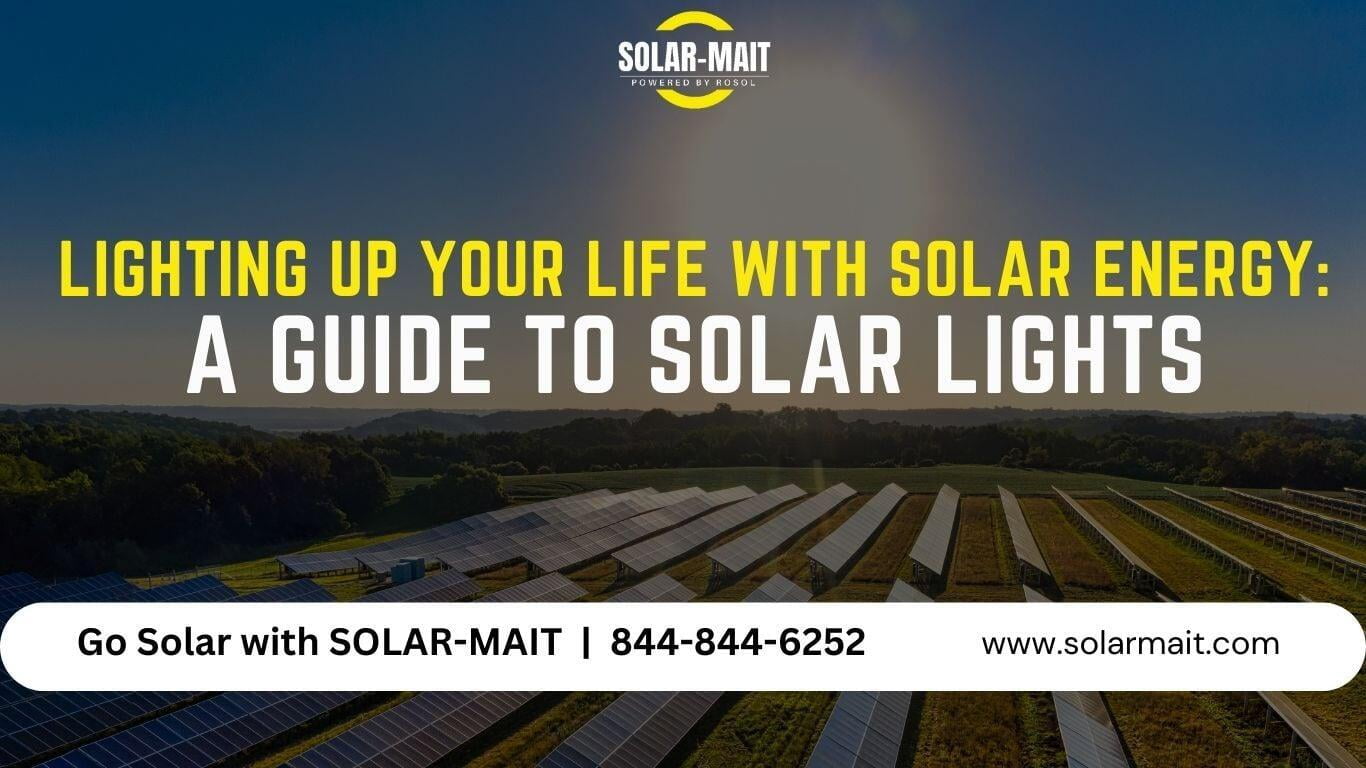Solar lights are a great way to light up your life while also reducing your carbon footprint. They are powered by sunlight, making them an energy-efficient and environmentally friendly lighting solution. In this guide, we will cover the basics of solar lights, including how they work, their advantages and disadvantages, and some tips on how to choose the right solar lights for your needs.

How do solar lights work?
Solar lights are powered by photovoltaic cells, which convert sunlight into electricity. The cells are typically made of silicon and are placed on top of a small circuit board, which includes a battery and a light-emitting diode (LED).
During the day, the photovoltaic cells absorb sunlight and convert it into electricity, which is stored in the battery. As the sun sets and the ambient light level decreases, a sensor in the solar light detects the change in light and turns on the LED. The LED provides the light source, and the battery provides the power.
What are the advantages of solar lights?
Energy efficiency: Solar lights are powered by sunlight, which is a free and renewable energy source. They don't need to be connected to the electrical grid, which means you don't have to pay for electricity.
Environmentally friendly: Solar lights don't produce any emissions or pollutants, making them a clean and green lighting solution.
Easy to install: Solar lights are easy to install, as they don't require any wiring or electrical connections. You can simply place them where you want them and let them do their thing.
Low maintenance: Solar lights require very little maintenance, as they don't have any moving parts or components that need to be replaced.
Versatility: Solar lights come in a wide variety of shapes and sizes, making them suitable for a range of applications, from pathway lighting to decorative lighting.
What are the disadvantages of solar lights?
Dependence on sunlight: Solar lights rely on sunlight to function, which means they may not work as well in cloudy or rainy weather.
Initial cost: Solar lights can be more expensive to purchase initially than traditional lighting solutions.
Limited illumination: Solar lights may not be as bright as traditional lighting solutions, particularly in areas with limited sunlight.
Battery life: The battery in a solar light will eventually wear out and need to be replaced, which can be an added cost.
How do I choose the right solar lights for my needs?
When choosing solar lights, consider the following factors:
Location: Consider where you will be placing the solar lights and how much sunlight the area receives. If the area is shaded or receives limited sunlight, you may want to choose solar lights with larger solar panels or ones that come with a separate solar panel.
Purpose: Determine the purpose of the solar lights. Do you want them for pathway lighting, security lighting, or decorative lighting? This will help you choose the right type of solar lights.
Brightness: Consider how bright you want the solar lights to be. Look for the lumen rating of the solar lights to get an idea of how bright they will be.
Battery life: Consider the battery life of the solar lights, particularly if you will be using them for security lighting or for long periods of time. Look for solar lights with longer battery life or ones that come with replaceable batteries.
Durability: Consider the durability of the solar lights, particularly if they will be exposed to the elements. Look for solar lights that are waterproof and made from durable materials.
In summary, solar lights are an energy-efficient and environmentally friendly lighting solution that can be used for a variety of purposes. When choosing solar lights, consider factors such as location, purpose, brightness, battery life, and durability to ensure you choose the right ones for your needs.
